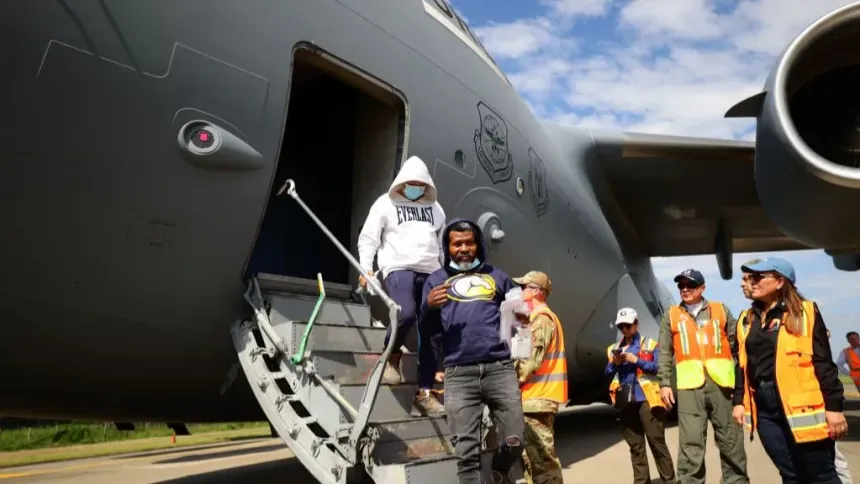Eswatini’s government has announced the voluntary repatriation of Orville Isaac Etoria, a 62-year-old Jamaican man who was deported from the United States under former President Donald Trump’s strict immigration policies. Etoria was sent to Jamaica over the weekend, where he was reportedly “warmly welcomed by his family.”
Etoria’s case has ignited international criticism. The Legal Aid Society of New York condemned his treatment, noting that he had migrated to the US as a child and held lawful permanent resident status for decades. After serving a 25-year prison sentence for murder, Etoria had “transformed his life” and reintegrated into American society, according to the group.
However, in July, Etoria was expelled to Eswatini—a country with which he had no ties—alongside four others from Cuba, Laos, Vietnam, and Yemen. The US government branded them “depraved monsters.” Upon arrival, they were held in solitary confinement at a maximum-security prison in Mbabane, Eswatini’s capital.
While Etoria has now returned to Jamaica, the four remaining deportees remain in detention. Lawyers say they have been unable to reach their clients. Eswatini officials maintain they are working to repatriate them as well.
The deal between Washington and Mbabane has sparked outrage. Human rights activists in Eswatini described the arrangement as unconstitutional, arguing that the government bypassed parliament. Demonstrators have protested outside the US embassy, and legal challenges are underway to overturn the agreement.
Eswatini’s government insists it acted within its constitutional powers. The small southern African nation, formerly known as Swaziland, is Africa’s last absolute monarchy under King Mswati III, who has ruled since 1986.
The controversy underscores the far-reaching consequences of Trump’s hardline immigration agenda, which saw mass deportations, often to countries where deportees had little or no connection. Etoria’s case may set a precedent as rights groups continue to fight for those still detained.

